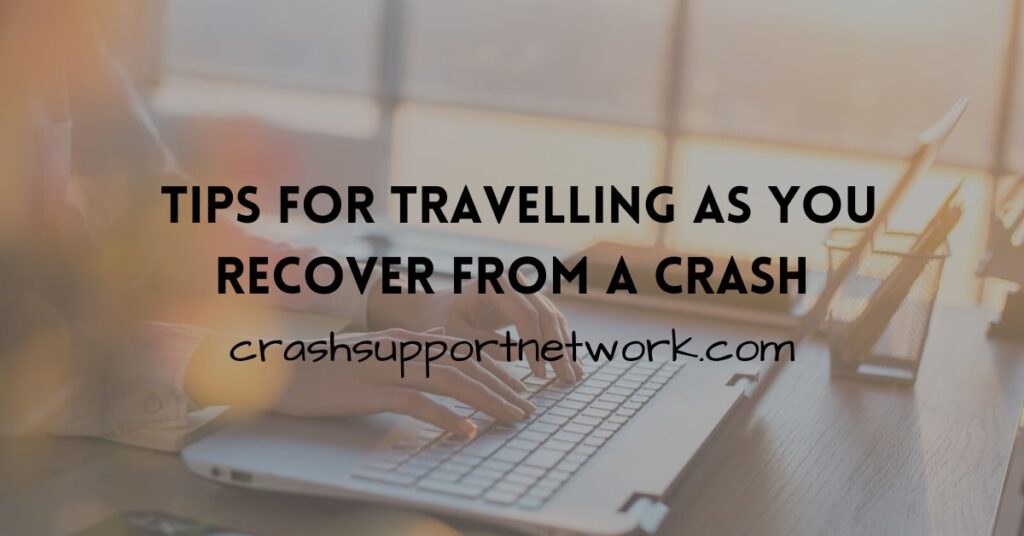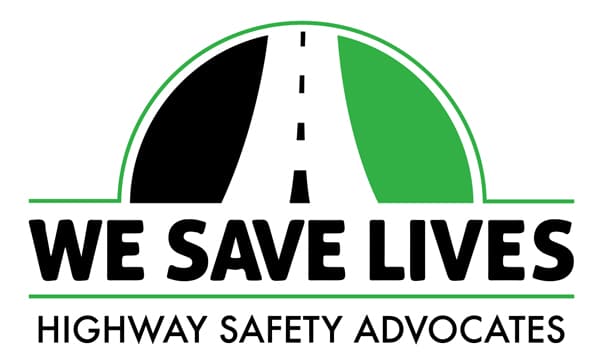
Travelling while recovering from a motor vehicle crash can be difficult but it is possible. For those of us who are recovering from a collision, we are aware of the conflicting emotions when planning a trip or vacation. Your family wants to escape, the kids are excited to see new places and have new experiences. We dread the thought of hotel mattresses, having to sit for long periods of time, not getting enough rest and dealing with the chronic pain we may be experiencing. Although difficult, travelling while recovering may be possible and necessary. From one crash survivor to another, here are some tips to make travelling a little easier for every crash survivor:
- Don’t be caught without enough medications before you leave. If you need refills call your pharmacy 10 days before your trip. Pack your medications in your carry on as they could lose your luggage or you could miss your connecting flight. Keep a small, lightweight, hands-free bag with essentials handy which could include medications, topical relief, water and snacks.
- Speak to your doctor before you travel. Your doctor can help you determine whether it’s safe to travel and what precautions you may need to implement on your trip.
- Carry your insurance cards and identification. Double check that you have your passports, tickets, medication & house keys – anything essential for your trip.
- Stress & anxiety can cause tension in the body and amplify the pain signals sent to your brain so allow plenty of time to get to the airport, train station or packing the car.
- If possible, take your favourite blanket and/or pillows. Try to make your bed as close to your bed at home as possible.
- If you need a room on the main floor, a room with a bath tub or a room closer to the elevator ask for it! Don’t be shy about asking for help or special accommodations. If you need a wheelchair, arrange to have one available.
- If you are doing a lot of travelling by car, bus, train or plane, you may be required to sit for extended periods of time. If you are driving try to stop every two hours for a 15 min stretch break. If you are on a plane, train or a bus, take a walk to the restroom. Try you best to keep moving.
- Travelling will tire even the healthiest person so when you have the chance to nap take it!
- Sore swollen feet will take the fun out of a trip fast! Dress for comfort in loose non-restrictive clothing and a pair of comfortable safe shoes.
- Pack for all temperatures and environmental fluctuations. Protect your health. Wearing a scarf when traveling can not only keep you warm but it also dubs as a mask to ward off germs that can circulate.
- Stay hydrated! Drink lots of water. Your immune system requires water to work at optimum levels. Having a healthy immune system will put less stress on the body and in turn may ease chronic pain.
- Know your obstacles. If you are having a flare up and not feeling up to participating in something that has been planned on your vacation, be honest with your family and friends. They will understand and should give you some time to relax and rest. Don’t push yourself! You need to take care of yourself as it is your vacation too.
- If you are currently under legal representation for a personal injury claim, alert your lawyer that you are going out of town and stay off of social media.
Travel comes with challenges for everyone, but especially those of us who are travelling while recovering from a collision and living with conditions that cause chronic pain. But, if we respect our limitations and listen to what our body tells us, we can try to enjoy our time away from home.
S. Dawne McKay is a survivor of a horrific crash that changed her life forever. Dawne shares her personal journey as a Crash Survivor Blogger and also collaborates with crash survivors as Guest Bloggers allowing them an opportunity to share their stories. Dawne is also the author of the book, “Talk Crash to Me – What to Expect After Surviving a Collision and How to Manage Your Recovery” which is available for purchase on Amazon.
The Crash Support Network is a unique one-of-a-kind website consisting of an online support group, a crash survivor blog, a quarterly newsletter, “Sharing Our Recovery” as well as highly informative articles. Our website is based on relationship-building and puts the needs of survivors first by creating a helpful resource for victims and survivors of motor vehicle crashes.





